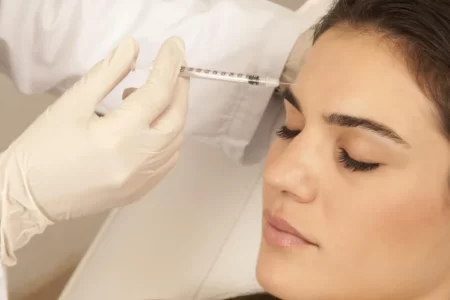Vitamin C, also referred to as L-ascorbic acid, is a crucial component supporting bodily functions. Contrary to several other vitamins, vitamin C cannot be produced by the body but is present in a wide variety of foods, primarily fruits and vegetables. Therefore, you can also take it as a supplement.
Each of the tissues in your body requires vitamin C to grow and heal. In addition, it aids in producing collagen, which is necessary for developing the vascular system, ligaments, tendons, bones, skin, and other tissues.
Vitamin C is essential for keeping healthy bones and teeth as well as for the healing of wounds. Additionally, it aids in the body’s absorption of nonheme sources of iron.
So you might wonder, with all these benefits, are you getting enough Vitamin C through your diet? Continue reading this article. Let’s find out!
Why Vitamin C Is Essential
Since it is water-soluble, vitamin C is not stored by the body. Therefore, people must regularly eat foods containing Ultra Vitamin C to maintain optimal amounts of the vitamin.
Our body requires vitamin C for several processes. Here are a few examples:
- It aids in the body’s production of L-carnitine, certain neurotransmitters, and collagen.
- As an antioxidant, it aids in the removal of harmful molecules from the body known as reactive oxidative species.
- It aids iron absorption in the body.
- Increased immune function results.
- It speeds up wound recovery.
Free radicals and other compounds known as ROS are byproducts of normal pollution exposure, biological functions, and other reasons. They might result in oxidative stress, which might damage cells.
The antioxidant properties of Ultra Vitamin C can assist in reducing inflammation and the chance of contracting several illnesses, including certain malignancies.
Vitamin C is required by the body to create collagen. This makes up 1% to 2% of muscle tissue and is the major component of connective tissue.
Collagen is an essential part of fibrous tissues like:
- Tendons
- Ligaments
- Cornea
- Cartilage
- Bones
- Stomach
- Blood vessels
Scurvy can result from low amounts of vitamin C in the body. Anemia, fatigue, swollen joints, bleeding gums, and loose teeth are all signs of scurvy.
How To Make Sure That You Are Getting Sufficient Vitamin C?
The best method to receive all of your vitamins is through food. If you consume fruits, veggies, or other products, you’ll also get a variety of other minerals, fiber, and vitamins, including vitamin C.
Eat a variety of fresh fruits and vegetables to be sure you’re receiving adequate vitamin C. Citrus fruits, berries, peppers, tomatoes, green vegetables, and potatoes, particularly new potatoes, are foods that contain vitamin C.
While eating a balanced diet can provide you with all the vitamin C you need, some people choose to use supplements, especially if they don’t always consume at least five servings of fruit and vegetables daily.
Adults require a daily intake of 40 milligrams of vitamin C. This is easy to achieve with a diet rich in fruits and vegetables, such as oranges and red peppers.
As soon as you start obtaining enough vitamin C, whether through diet or supplementation, symptoms of a deficiency go away swiftly.
The Health Advantages Of Vitamin C
Serious health issues are not solved by getting supplements of a single nutrient. Other lifestyle practices, such as getting adequate sleep, exercising regularly, and quitting smoking, are crucial since they frequently cooperate.
However, studies suggest that Ultra Vitamin C has advantages for your health in the following areas:
Stress
Many diseases linked to stress are correlated with vitamin C deficiency. Alcoholics, smokers, and obese people are the first to become deficient in this vitamin. Maintaining levels of vitamin C can also be a good indicator of general health as it is one of the vitamins susceptible to stress, according to Moyad.
Cold
Vitamin C is not a cure for the common cold, but some research suggests it can help avoid more severe side effects.
Stroke
People with the highest blood levels of vitamin C had a 42% lower risk of stroke than people with the lowest levels. The causes of this are not well understood. However, those who consume a lot of fruits and vegetables have higher levels of vitamin C in their blood.
Skin Aging
Vitamin C impacts internal and external body cells, and its antioxidant capabilities can slow the aging process.
The Bottom Line
Most people who consume a balanced diet have no trouble acquiring the recommended daily amount of vitamin C. However, if you aren’t sure, you can always think about taking a supplement, as most of them contain the daily recommended dose of vitamin C.
Consuming a range of fruits and vegetables that are high in vitamin C can also help support overall wellness and good health.






